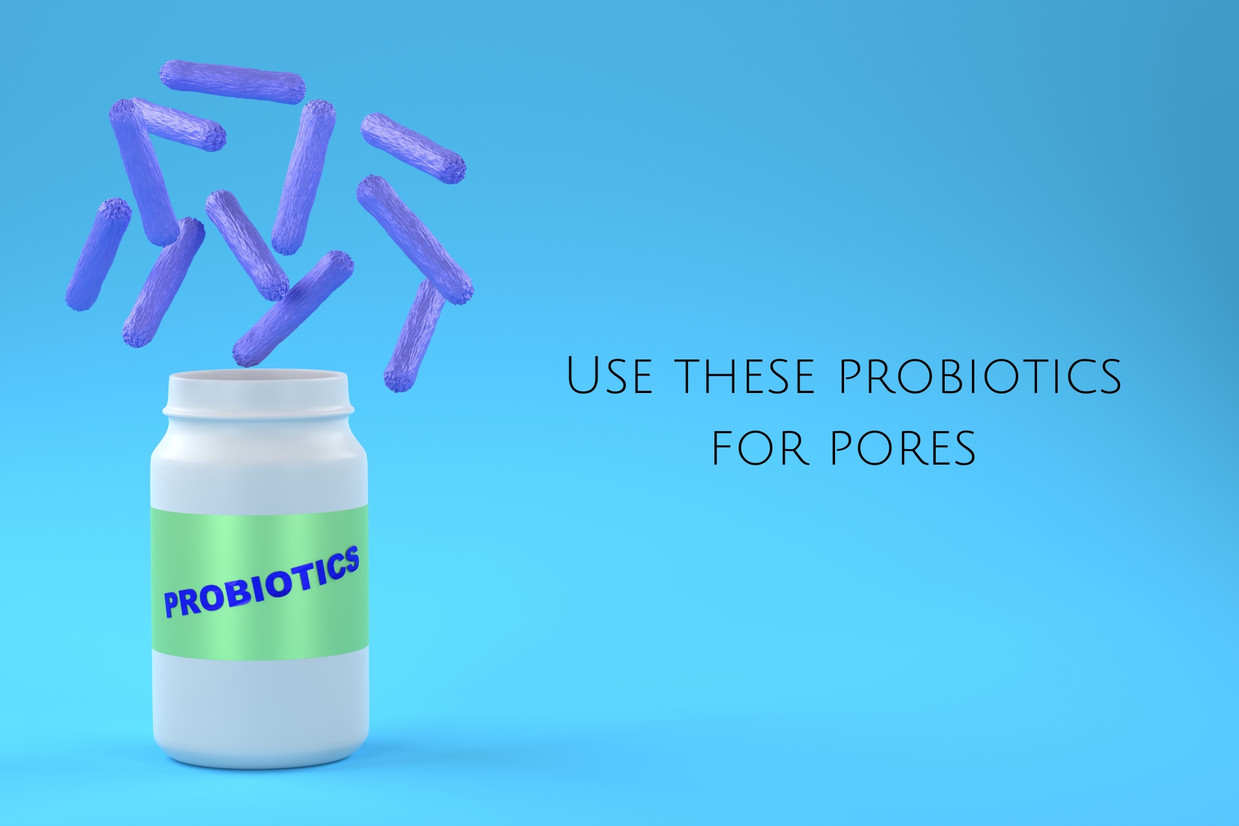Use these probiotics for pores
Probiotics are beneficial bacteria that can promote a healthy balance in the skin's microbiome. While they are often associated with gut health, there is emerging research suggesting that probiotics may also have positive effects on skin health, including managing conditions related to pores. Here are some probiotics and natural sources that may potentially be beneficial for promoting healthy pores:
Lactobacillus:
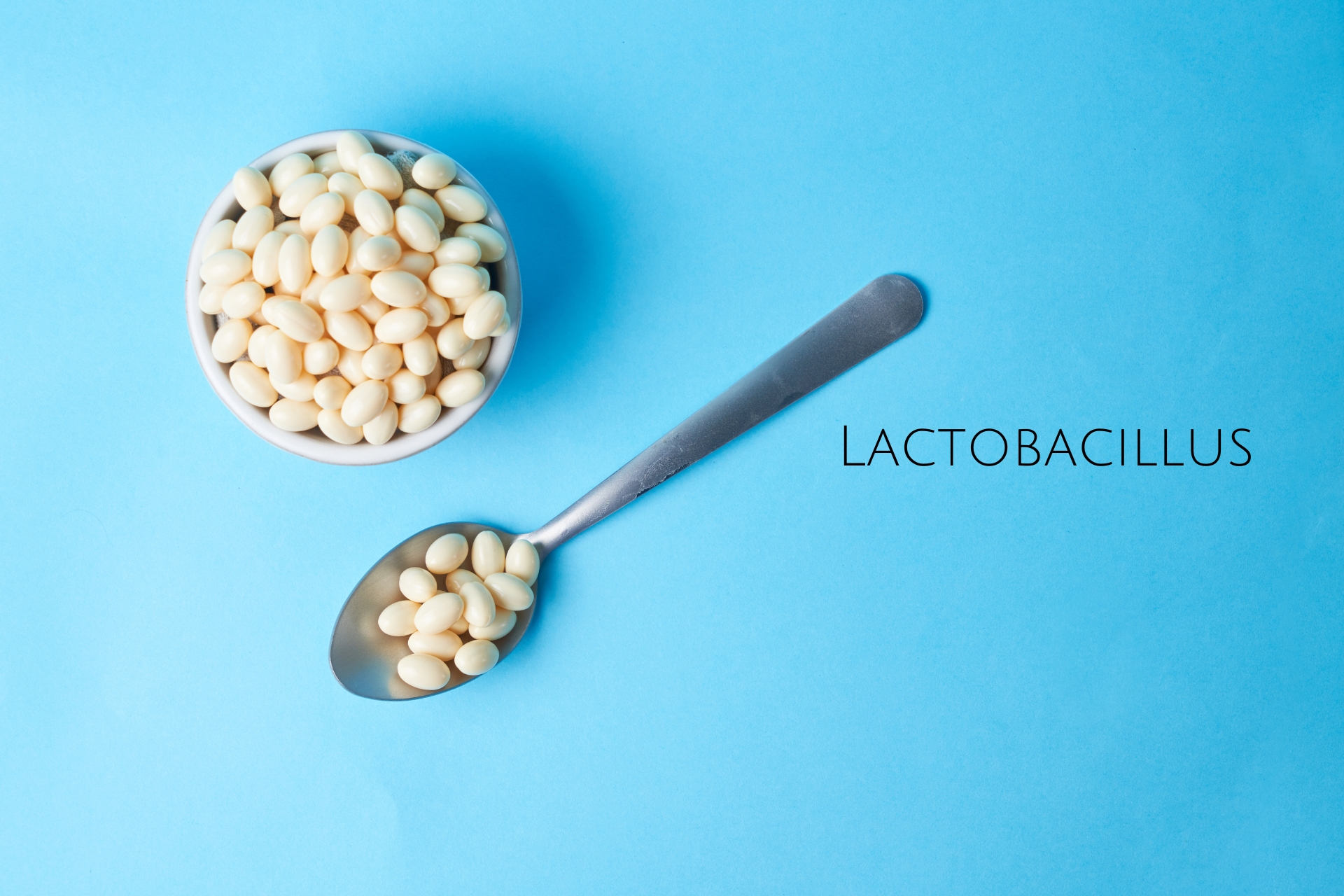
Lactobacillus is a genus of bacteria that includes various species known for their probiotic properties, often associated with promoting gut health. While the primary focus of Lactobacillus is on the digestive system, there is growing interest in its potential impact on skin health. Here's how Lactobacillus may be beneficial for the skin:
- Balancing the Microbiome:
Lactobacillus can contribute to maintaining a balanced microbiome on the skin. A balanced microbiome is associated with healthier skin, as it helps prevent the overgrowth of harmful bacteria.
- Supporting the Skin Barrier:
A healthy skin barrier is crucial for preventing moisture loss and protecting against environmental factors. Lactobacillus strains may contribute to the reinforcement of the skin barrier, promoting overall skin health.
- Anti-Inflammatory Effects:
Some research suggests that certain Lactobacillus strains may have anti-inflammatory properties. This can be beneficial for individuals with inflammatory skin conditions, potentially helping to calm redness and irritation.
- Promoting Wound Healing:
Lactobacillus may play a role in supporting wound healing. By influencing the skin's microenvironment, probiotics could potentially contribute to faster recovery and reduced scarring.
Bifidobacterium:
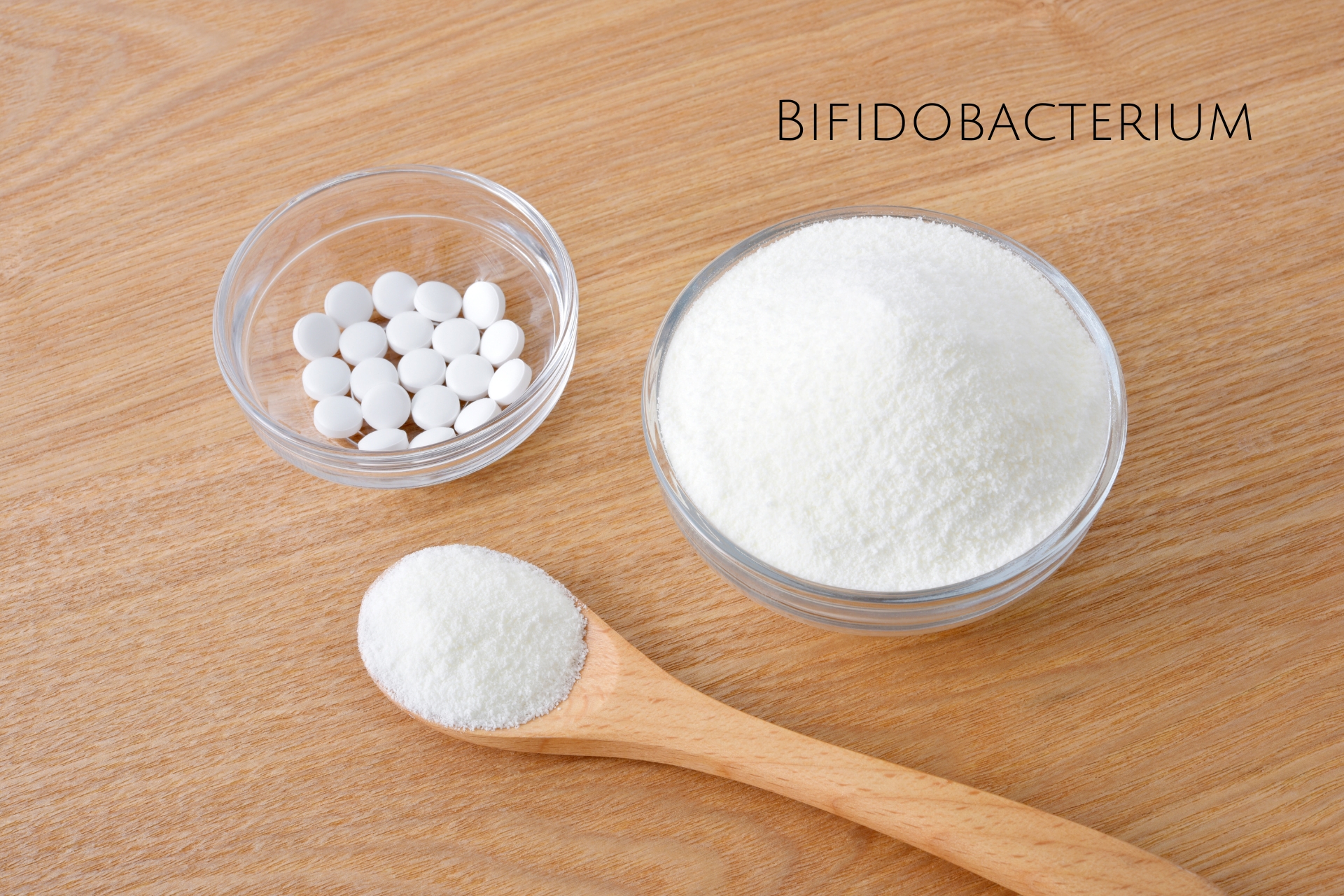
Bifidobacterium is another genus of bacteria with probiotic properties, commonly associated with promoting gut health. While its primary role is related to digestive health, there is emerging interest in the potential benefits of Bifidobacterium for skin health. Here's how Bifidobacterium may contribute to skincare:
- Microbiome Balance:
- Bifidobacterium helps maintain a balanced microbiome on the skin. A balanced microbiome is essential for a healthy skin barrier and protection against harmful microorganisms.
- Barrier Function Support:
- Probiotics, including Bifidobacterium, are believed to support the skin barrier. A strong and intact skin barrier helps prevent water loss and shields the skin from external irritants.
- Anti-Aging Potential:
- Some studies suggest that Bifidobacterium may have anti-aging effects on the skin. These effects could be attributed to the probiotic's ability to enhance the skin's natural defenses and promote collagen production.
- Reduction of Inflammation:
- Bifidobacterium strains may possess anti-inflammatory properties, which can be beneficial for individuals with inflammatory skin conditions. By reducing inflammation, these probiotics may help soothe irritated skin.
Kimchi:
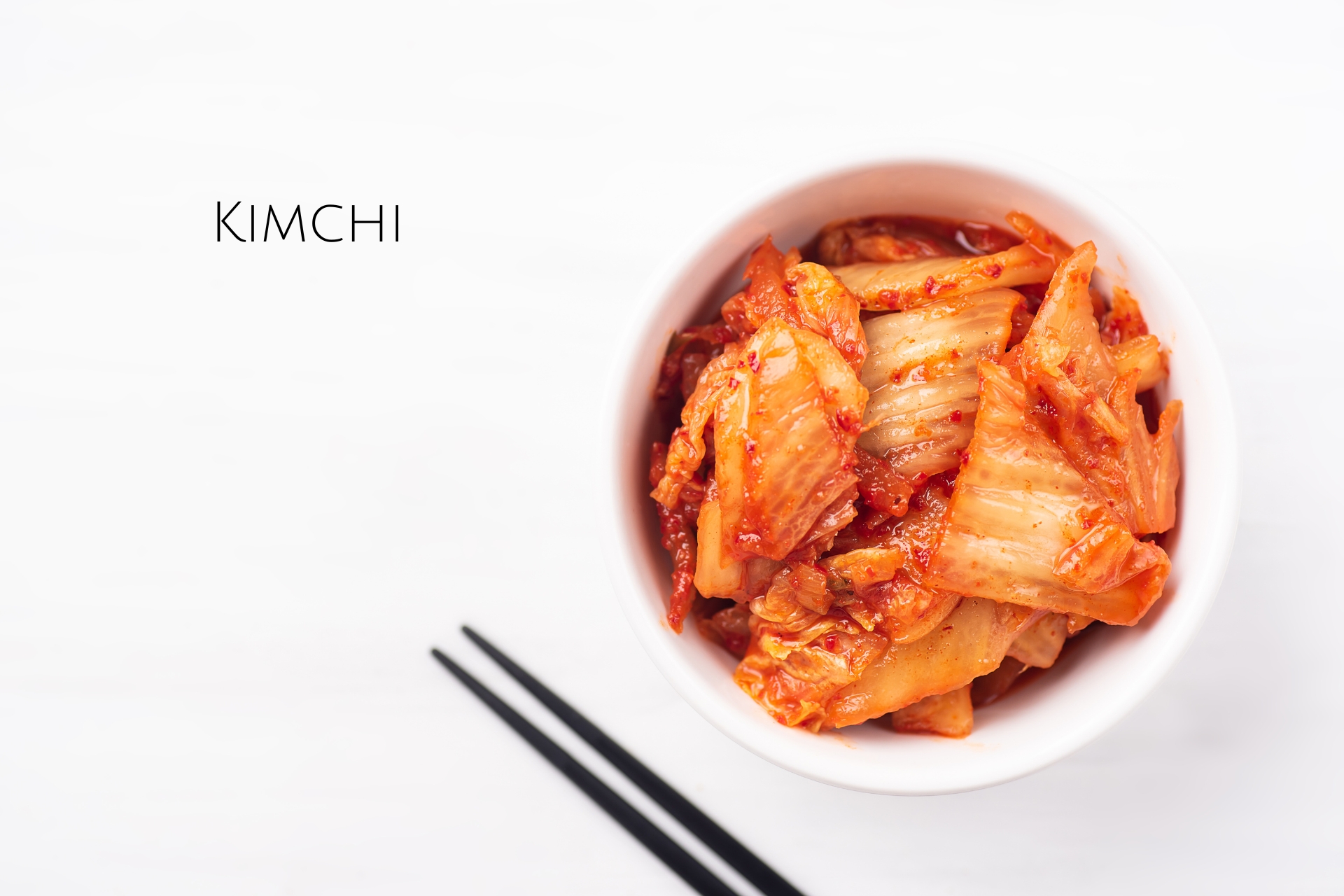
Kimchi is a traditional Korean fermented dish made primarily from napa cabbage, Korean radishes, and a variety of seasonings, including chili peppers, garlic, ginger, and fish sauce. The fermentation process involved in making kimchi leads to the production of beneficial probiotics, which can contribute to overall gut health. Here's how kimchi and its probiotics may impact health:
- Probiotic Content:
- Kimchi is rich in probiotics, including lactic acid bacteria such as Lactobacillus kimchii, Lactobacillus brevis, and Leuconostoc mesenteroides. These bacteria play a crucial role in the fermentation process, creating a favorable environment for other beneficial microorganisms.
- Gut Health:
- Consuming foods like kimchi that are naturally fermented can introduce live beneficial bacteria into the digestive system. This may contribute to a diverse and healthy gut microbiome, which is associated with improved digestion and overall well-being.
- Immune System Support:
- A healthy gut microbiome is linked to a well-functioning immune system. Probiotics in kimchi may play a role in supporting immune function by promoting a balanced microbial environment in the gut.
- Anti-Inflammatory Effects:
- Some studies suggest that probiotics found in fermented foods like kimchi may have anti-inflammatory properties. This can be beneficial for individuals with inflammatory conditions, potentially impacting skin health and other bodily functions.
Kombucha:
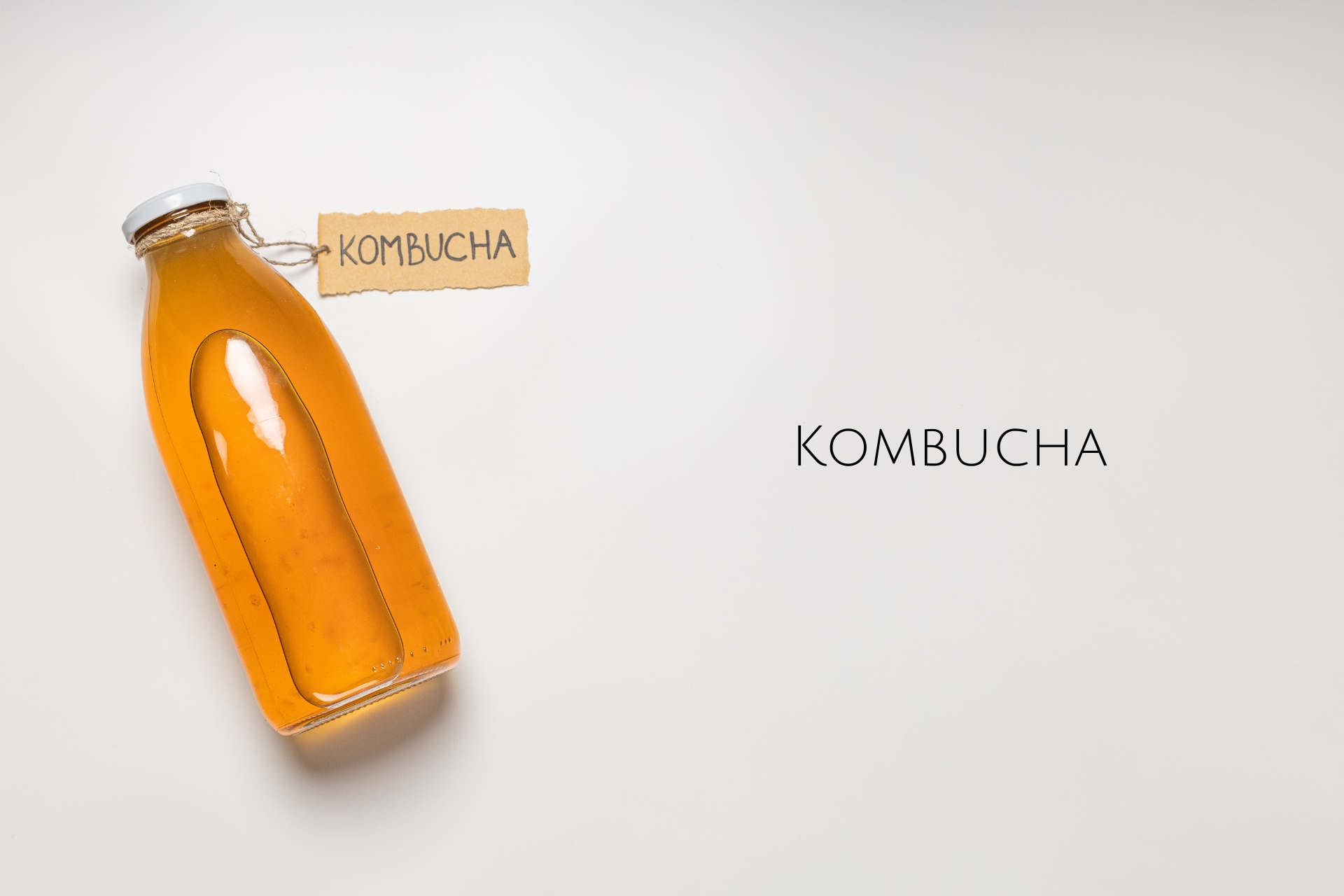
Kombucha is a fermented tea beverage that has gained popularity for its potential health benefits, including the presence of probiotics. The fermentation process involves the use of a symbiotic culture of bacteria and yeast (SCOBY), which produces probiotics and other bioactive compounds. Here's how kombucha and its probiotics may contribute to health:
- Probiotic Content:
- Kombucha is known for its probiotic content, with various strains of bacteria and yeast present in the SCOBY. Common probiotic strains found in kombucha include Acetobacter, Gluconacetobacter, Lactobacillus, and Saccharomyces.
- Gut Health:
- Consuming kombucha introduces live beneficial bacteria into the digestive system, contributing to a diverse and healthy gut microbiome. Probiotics support digestion and nutrient absorption while helping maintain a balance between good and harmful bacteria in the gut.
- Immune System Support:
- A healthy gut microbiome is linked to a robust immune system. The probiotics in kombucha may play a role in supporting immune function by promoting a balanced microbial environment in the gut.
- Antioxidant Properties:
- Kombucha contains antioxidants, which are compounds that help neutralize harmful free radicals in the body. These antioxidants may contribute to overall health and protection against oxidative stress.
Miso:
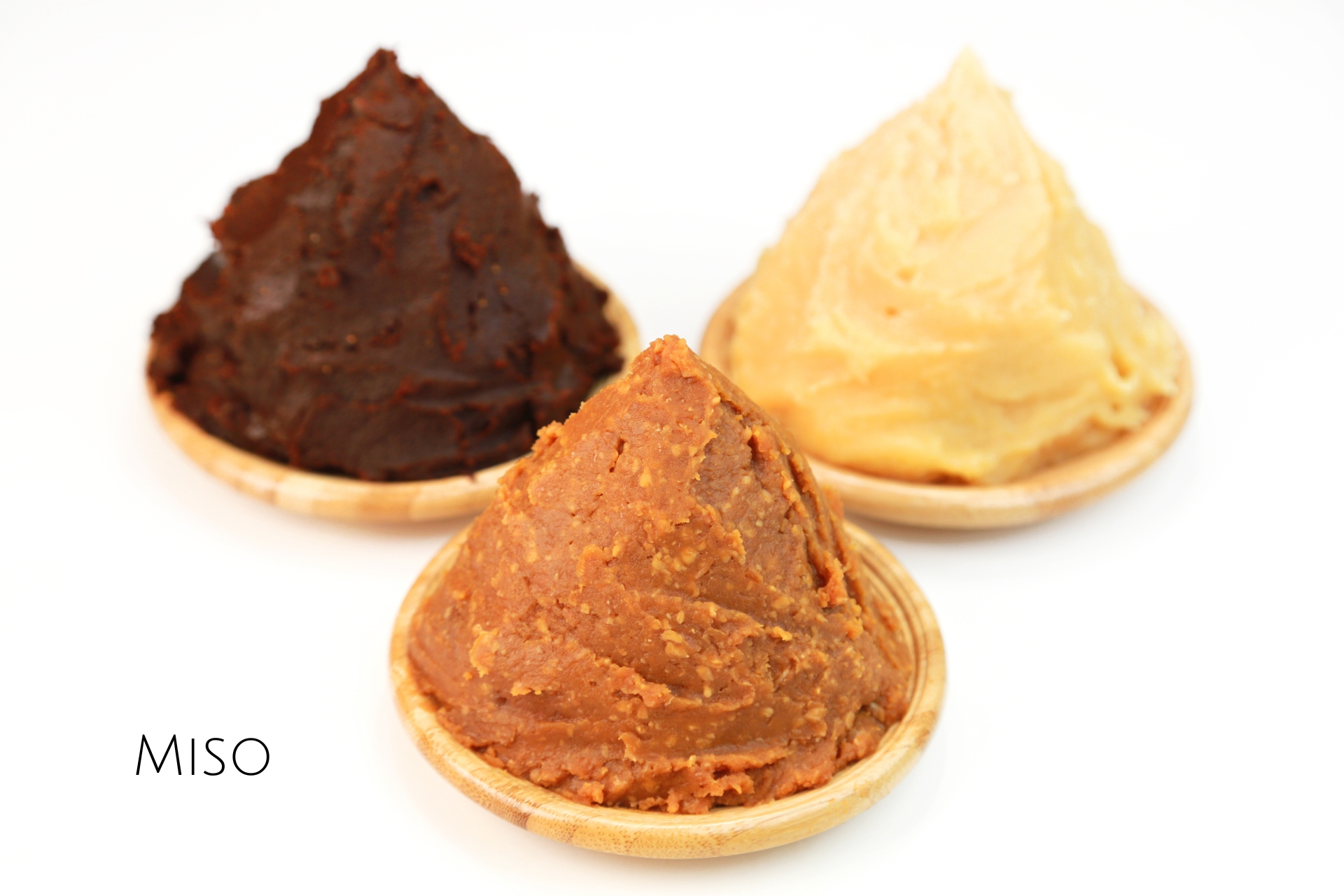
Miso, a staple in Japanese cuisine, is crafted through the fermentation process of soybeans, salt, and koji, a fungus. This traditional Japanese seasoning boasts a rich umami flavor that adds depth to various dishes. The fermentation process gives rise to various probiotic bacteria and other bioactive compounds. Here's how miso and its probiotics may contribute to health:
- Probiotic Content:
- Miso is rich in probiotics, particularly strains of lactic acid bacteria such as Lactobacillus. These beneficial bacteria play a role in the fermentation process and can contribute to the gut microbiome when consumed.
- Gut Health:
- Consuming miso introduces live beneficial bacteria into the digestive system, promoting a healthy gut microbiome. A balanced microbiome is associated with improved digestion, nutrient absorption, and overall gut health.
- Protein and Nutrient Source:
- Miso is a source of plant-based protein and provides essential nutrients such as vitamins, minerals, and amino acids. Including miso in the diet can contribute to overall nutritional balance.
- Antioxidant Properties:
- Fermented foods like miso contain antioxidants that help neutralize free radicals in the body. Antioxidants play a role in protecting cells from oxidative stress and may have anti-aging benefits.
- Support for the Immune System:
- The gut microbiome, influenced by probiotics in foods like miso, is linked to immune system function. Consuming miso may contribute to a healthy immune system by supporting the balance of beneficial bacteria in the gut.
Probiotic Supplements:

Probiotic supplements are concentrated forms of beneficial bacteria that are designed to supplement the natural bacteria in your gut. These supplements typically contain strains of probiotic bacteria, such as Lactobacillus and Bifidobacterium, which are known for their positive effects on gut health. Here's how probiotic supplements may contribute to overall health:
- Gut Microbiome Balance:
- Probiotic supplements aim to support a healthy balance of bacteria in the gut microbiome. This balance is essential for proper digestion, nutrient absorption, and overall gut function.
- Digestive Health:
- Probiotics are recognized for their role in promoting digestive health. They can help maintain a balanced environment in the gut, reducing the prevalence of harmful bacteria and supporting efficient digestion.
- Immune System Support:
- The gut and the immune system are closely connected closely . Probiotics in the gut can influence immune function, potentially enhancing the body's ability to defend against infections and diseases.
- Anti-Inflammatory Effects:
- Some probiotic strains have demonstrated anti-inflammatory properties. By modulating the immune response and reducing inflammation, probiotics may benefit individuals with inflammatory conditions.
- Lactose Digestion:
- Certain probiotics, such as Lactobacillus acidophilus, can assist in the digestion of lactose. For those who struggle with lactose intolerance or find it challenging to digest dairy products, this can offer a beneficial alternative. Individuals facing difficulties with lactose digestion can find relief or suitable options through this.
- Mood and Mental Health:
- Emerging research suggests a potential connection between the gut and mental health. Probiotics may play a role in influencing the gut-brain axis, with some evidence indicating benefits for mood and mental well-being.
- Women's Health:
- Probiotics may be beneficial for women's health, particularly in preventing or managing conditions like urinary tract infections (UTIs) and bacterial vaginosis. Specific strains like Lactobacillus rhamnosus and Lactobacillus reuteri are commonly associated with women's health.
It's important to note that while probiotics show promise in supporting skin health, individual responses can vary. Additionally, more research is needed to fully understand the specific strains and concentrations of probiotics that may be most effective for skin conditions, including pore health.
Recent Posts
-
Exploring the Evolutionary Role of Bacteria-Fungi Symbiosis in Cell Development
The intricate relationships between microorganisms have long fascinated scientists. Among these, the
-
From Stress to Serenity: Real-Life Success Stories of Adaptogen Use
While lifestyle changes like exercise, meditation, and a healthy diet are essential for managing str
-
The Long-Term Effects of Chemical Exposure on Human Health
The Long-Term Effects of Chemical Exposure on Human Health Chemical exposure is an inevitable part o

